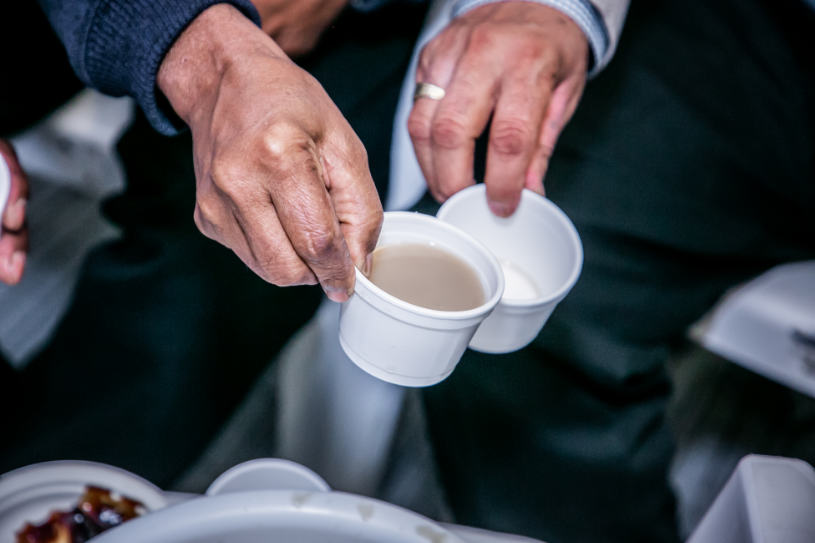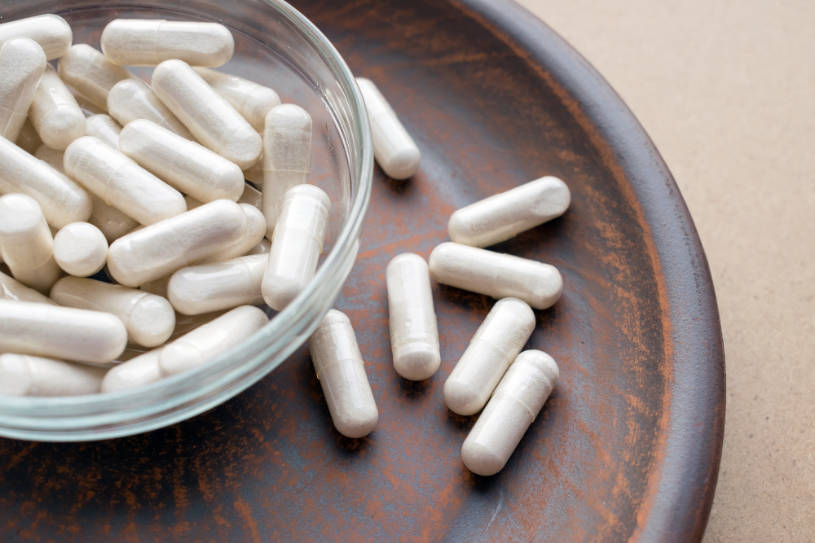Derived from the Piper methysticum plant, Kawa’s main use is an alternative medicine to relieve stress and anxiety. People who search for this medication may also refer to this as Kawa, Awa, Ava, Yaqona, and Sakau. Pacific Islanders have also used this herbal medicine for ritual purposes. Despite Kawa benefits, the drug can have both moderate and dangerous Kava interactions with other foods and substances especially if taken in higher doses. In 2003, one patient in Australia died due to liver damage after consuming Kawa and this is exacerbated by drug interactions.
Table Of Contents:
Generally, this is dangerous to the health as this could lead to death. Because of this, medical consultation is recommended before taking the drug in order to properly review the health condition of the patient. In this article, information about the interactions of Kava and alcohol, Kava and weed, Kawa and other drugs such as Xanax and Phenibut, and getting professional help to avoid Kava interactions and addiction will be provided.
While it is essential to appreciate its effectiveness, Kava drug interactions with the other drugs are still subject to research as scientists seek to ascertain the mechanism through which such interactions affect the body system.
Kava And Alcohol
People who are sleep-deprived search for sleeping pill alternatives. Kava tea can also be used for the treatment of tension and insomnia. While some people use alcohol to make themselves fall asleep, it is important to understand that taking Kava and alcohol at the same time is dangerous to one’s health. Herb users attempt to mix these two together to heighten the effect of the drug making them reach a quicker onset of their desired outcomes. When the liver metabolizes alcohol, it uses the enzyme CYP2E1. Coincidentally, the same enzyme is used in the metabolism of kavalactones. Combining Kava and alcohol, therefore, impedes the breakdown of the latter causing the blood-alcohol level to rise and increasing the chance of Kawa liver damage. In fact, in 2002, it was reported that Kawa could cause liver damage. This liver damage, then, could be exacerbated when it is mixed with alcohol.
Liver damage occurs because taking Kava and alcohol mixtures can put a strain on the metabolic pathway of Kawa. Besides, kavalactones alter how specific enzymes such as alkaline phosphatase and gamma-glutamyl transferase work. These are the same enzymes involved in the metabolic processes to break down alcohol. Toxicity could again result when one takes Kawa with alcohol as the liver may relegate alcohol metabolism to second in rank after the drug. So, what other dangers to health may occur when mixing these two together? They are:
- Decreased cognitive performance
- Alcoholic hepatitis
- Fat formation around the liver
- Severe dizziness and drowsiness
- Ataxia (a degenerative disease in the nervous system)
- Impaired reflexes
Although the main concern when mixing Kava and alcohol together is liver damage, it is still possible to experience other toxicities and dangers such as those listed above. Never combine these two substances together if there is a history of liver disease or damage.
Seek help from a medical professional to review if the patient has pre-existing diseases especially liver disease. If a patient had intentionally or unintentionally mixed these two together, it is a must to seek emergency medical care to avoid worsening of the toxicity.

Kava and Weed
Kava and weed purists would have it that consumers should stick to the two drugs in their separate forms without mixing them. There are two known types of cannabinoid (CBD) receptors: CB1R and CB2R. CB1R is abundantly expressed in the central nervous system and found in large quantities in the human brain while CB2R is found mostly in tissues and peripheral immune cells. One of the six main kavalactones in the herb is yangonin, a CB1R agonist. This means, it binds onto the receptor and activates it to produce feelings of euphoria and mild anxiety.
Therefore synergistic Kava drug interactions between the Kava and weed have the effect of amplifying the weed feeling as they work synergistically to activate the CB1R receptors in the endocannabinoid system (ECS).
Moreover, Repeated Activation of the Endocannabinoid System May Lead To the Following Dangers to the Health:
- Addiction
- Extreme drowsiness and dizziness
- Tremors
- Visual impairment
- Visual hallucination
- Auditory hallucination
- Impaired judgment
Aside from the dangers listed above, mixing Kava and weed together may also cause memory loss. If a patient is experiencing any of the dangers above, immediately seek emergency medical care, including rehabilitation programs if addiction is suspected. Rest assured that privacy will be respected to anyone who wants to enter a rehabilitation program.

Kava Drug Interactions
Kava interactions such as mixing intoxicating pepper with other substances is not always safe. For instance, elements that depend on the CYP 450 enzymatic pathway for metabolism may end up not being metabolized when mixed with the herb. This is because the drug inhibits this pathway. While it is essential to appreciate its effectiveness, Kava drug interactions with the other drugs are still subject to research as scientists seek to ascertain the mechanism through which such interactions affect the body system. Because of this ongoing research, users of mixtures involving the drug are advised to exercise caution.
Generally, interactions between the herb and synthetic drugs can potentially interfere with positive effects that could have otherwise been produced from its use. Therefore, deciding whether it is safe or not to mix the herb with other substances depends on the nature of the contents and the effect they will have working together. In this section, information about the Kava drug interactions with Xanax and Phenibut will be provided.
Kava and Xanax
Kawa is an herbal medicine derived from the roots of the plant Piper methysticum. For centuries, this has been used for the treatment of different health problems including anxiety and insomnia. On the other hand, Xanax, a brand name for Alprazolam under the drug class Benzodiazepines, is a short-acting tranquilizer and its main use is for the treatment of anxiety.
Moreover, Mixing Kava and Xanax Together May Cause Adverse Reactions Which Are Dangerous to the Health, Such as the Following:
- Withdrawal symptoms – In one study, it was reported the Kawa worsens the withdrawal symptoms of patients using Xanax or any Benzodiazepines.
- Coma – In another study, a patient who unintentionally mixed Kawa (brought from the local health food store) and Xanax was comatose. In this case, a patient is taking Kawa on a daily basis before getting a Xanax prescription.
- Oversedation and drowsiness
- Confusion and difficulty in concentrating
- Loss of coordination
- Having difficulty in breathing
Because of the side effects listed above, it is a must to never mix Kava and Xanax or any other anti-anxiety medications. So, before taking these two together, it is a must to always consult a doctor first. In case there is an unintentional mixing of Kava and Xanax, immediately seek medical help in order to avoid unwanted events, including comatose and death.
Phenibut and Kava
Phenibut is under the drug class GABA receptor agonist and acts as a central nervous system depressant. Additionally, this medication is a neuropsychotropic drug and its main use is for the treatment of anxiety like that of Kawa. Moreover, another use of this drug is for enhancing cognition (nootropic effects).
Aside from being anxiolytics, both Phenibut and Kava are used as analgesics. Although both of these medications help in achieving a calm, relaxed, and steady-state of mind, combining them together causes dangerous effects to the health such as the following:
- Extreme somnolence and dizziness
- Heavy sedation
- Withdrawal effects
- Nausea
- Lowered blood pressure
- Renal complications
The interaction between Phenibut and Kava is drug-drug interaction with additive effects. Before taking these two together, consult a medical doctor to get professional advice in order to know the potential side effects according to the health condition of the patient. Additionally, it is recommended to not operate any machinery when Phenibut and Kava are taken together in order to avoid accidents and even death.
Getting Professional Help
The search for OTC anti-anxiety product was over when Kawa occured. While this herb is a prescription-free product and has been seen to have anti-anxiety effects through randomized controlled tests, it is crucial to fully understand the information about the various Kava interactions it has with other drugs and substances.
According to the World Health Organization, in the year 2007 in Europe, 7 deaths and 14 liver transplants were reported in relation to the use of the herbal medicine Kawa and the other medications that interact with it. Therefore, it is always recommended to seek professional help before opting for a Kawa mix and ensure timely reporting since Kava drug interactions result in serious complications.
Rehab facilities offer counseling and detoxification services for individuals that want to recover from Kawa abuse. Choose the one that fits the personal needs of the patient and start addiction treatment and remember that privacy will always be protected if a patient is willing to enter a rehabilitation program or treatment.
Hope Without Commitment
Find the best treatment options. Call our free and confidential helpline
Most private insurances accepted
Page Sources
- Almeida, J. C., & Grimsley, E. W. (1996). Coma from the health food store: interaction between kava and alprazolam. Annals of Internal Medicine, 125(11), 940-941.
- Burros, M. (2002, January 16). EATING WELL; New Questions About Kava’s Safety. The New York Times. https://www.nytimes.com/2002/01/16/dining/eating-well-new-questions-about-kava-s-safety.html
- Cairney, S., Maruff, P., & Clough, A. R. (2002). The neurobehavioural effects of kava. Australian & New Zealand Journal of Psychiatry, 36(5), 657-662.
- Escher, M., Desmeules, J., Giostra, E., & Mentha, G. (2001). Hepatitis associated with Kava, a herbal remedy for anxiety. Bmj, 322(7279), 139.
- Foo, H., & Lemon, J. (1997). Acute effects of kava, alone or in combination with alcohol, on subjective measures of impairment and intoxication and on cognitive performance. Drug and Alcohol Review, 16(2), 147-155.
- Kava - Better Health Channel. (2020). Better Health Channel. Retrieved from https://www.betterhealth.vic.gov.au/health/healthyliving/kava
- Ligresti, A., Villano, R., Allarà, M., Ujváry, I., & Di Marzo, V. (2012). Kavalactones and the endocannabinoid system: the plant-derived yangonin is a novel CB1 receptor ligand. Pharmacological Research, 66(2), 163-169.
- Ramzan, I. (Ed.). (2015). Phytotherapies: Efficacy, Safety, and Regulation. John Wiley & Sons.

 Authored by
Authored by  Reviewed by
Reviewed by 

